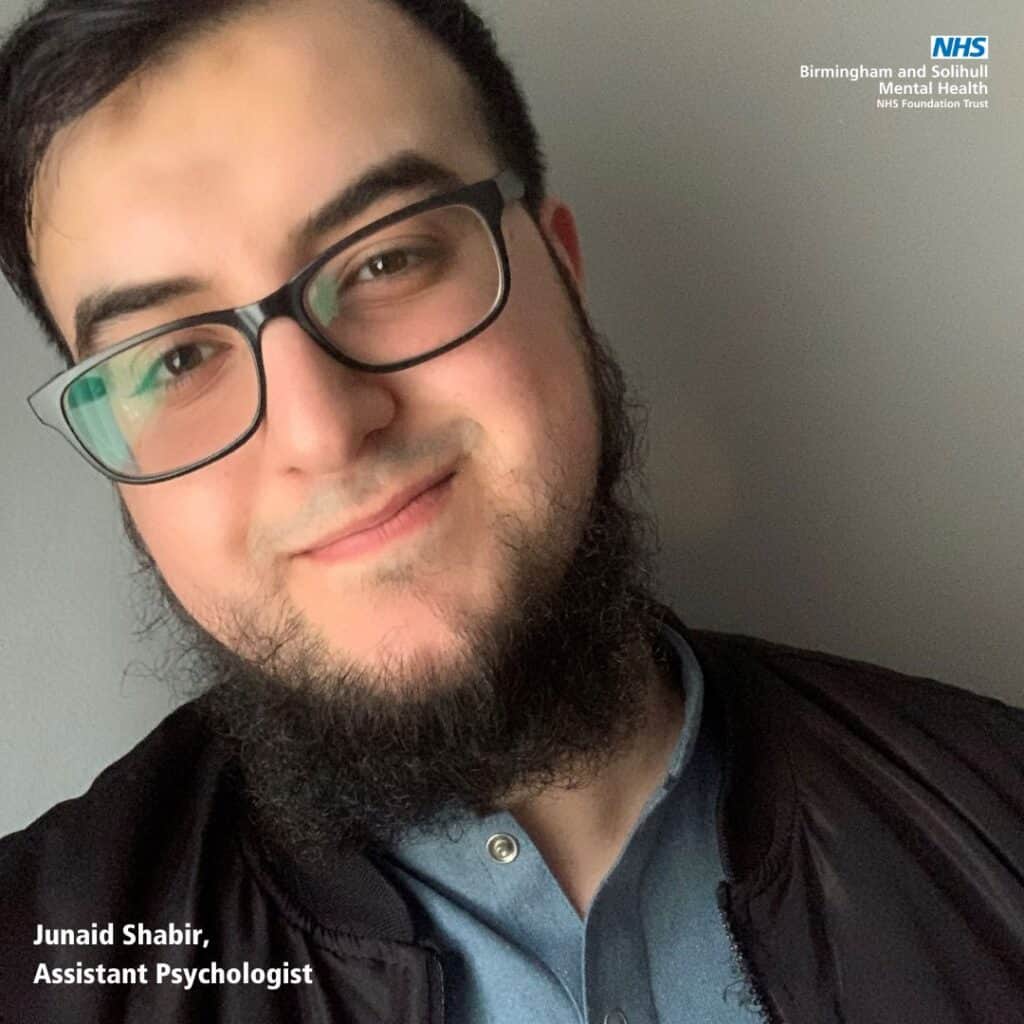Junaid Shabir, Assistant Psychologist discovered muraqabah, a type of meditation in the Islamic faith and adapted mindfulness to support our Muslim patients on George Ward and Eden Acute Unit. Junaid’s work has been recognised and published by the British Psychological Society.
Junaid discovered mindfulness when he was on placement and became increasingly interested in what it could offer.
After trying lots of different meditation and visualisation techniques, as a Muslim, Junaid felt something was missing. He then discovered muraqabahand began to wonder if it would work for some of the patients on the ward he worked in.
The term muraqabah is derived from the root letters of ر ق ب, meaning “to watch, observe, regarding attentively” and the purpose of muraqabah is to cultivate the remembrance of Allah.
On the acute inpatient wards Junaid and another assistant psychologist conduct weekly emotional coping skill group, where the patients are taught stress, anger, anxiety management skills and mindfulness breathing.
Initially when mindfulness or meditation was introduced on the ward, Muslim patients were a bit more hesitant towards it. They sometimes felt unmotivated to engage, often stating, “I have Islam, why would I need that?” or “I pray, which is enough for me.”
Junaid’s goal with introducing muraqabah on to the ward was to increase psychological engagement with Muslim patients.
Junaid was asked how muraqabah has impacted the patients on his ward and how it feels to have his work published by the British Psychological Society. He said:
“I started practicing Muraqabah on the ward as I believed Muslim patients would benefit from it. I saw that regular mindfulness was just not doing it for some Muslim patients, so I thought I would share with them insights from the Islamic tradition, one of them being Muraqabah.
When I started to practice muraqabah with Muslim patients, I began to notice that their engagement with psychological interventions on the ward had increased and they would be more open with discussing their mental health with myself.
It still hasn’t sunk in that I have published something which is recognised by the British Psychological Society (BPS). I remember the moment when I discussed muraqabah with my supervisor, Dr Loretta Davis, and she suggested writing a reflection piece on it. From that moment, I began to formulate how a written piece on it would look like and just knew I wanted to it be published with the BPS. Hopefully this is the first of many publications.”
We can read more about Junaid’s work on the British Psychological Society website.

Published: 19 June 2024







